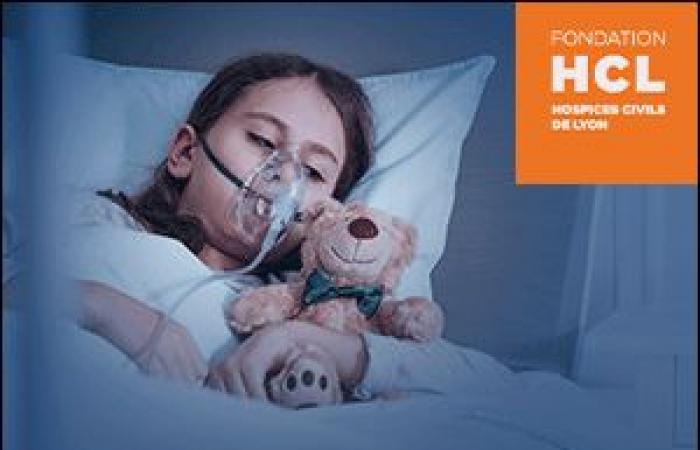Maintaining employment for people with cancer (such as pancreatic, breast or cervical cancer) is a social issue. The disease affects not only personal life, but also professional life. Five years after diagnosis, 20% of patients would have lost their job, particularly those with less education, those over 50 and those on precarious contracts. The SARA association supports people affected by this disease by facilitating exchanges between patients, healthcare professionals and businesses.
The book “Gai-laugh: friendship in illness” traces the journey of its author, Alexandra Jover and the creation of the SARA association, in Lyon. It tells the story of Sarah, his best friend, who fell ill at 25. Alexandra was by his side, particularly during his relapse, an experience which marked and influenced his own journey.
“When Sarah fell ill, I was in a crisis of meaning in my communication work. I felt an intense shock when she announced her cancer”confides Alexandra. “She was battling illness, while I was healthy but unhappy in my job. I decided to resign, take training and create the association.”
Cancer at work: what challenges for the patient?
What is the main difficulty for a person working with cancer?
One of the major difficulties is the loss of reference points between the end of treatment and the potential return to work. During treatment (such as chemotherapy treatment), there is medical monitoring. But in the end, the doctors say: “It’s over, we’ll see you again in three months.” » This rupture is destabilizing and leaves patients without direction and with a loss of confidence. Around 63.5% of patients have after-effects five years after treatment.
What are the most common side effects?
The most common side effects are chronic fatigue, which does not go away with rest, and cognitive problems such as memory loss and difficulty concentrating. These symptoms necessarily complicate the return to work.
What can companies actually do to facilitate the return?
Companies can help by maintaining contact with the employee as soon as the illness is announced, if the person wishes. This regular contact alleviates the fear of returning. Then, it is important to show empathy and listen, because the news of cancer can also be a shock for colleagues. This then makes it possible to implement concrete actions: organize an appropriate work pace, rearrange tasks, etc.
Unfortunately, businesses are not ready to take this approach. Sometimes it takes a lot of luck to find an empathetic employer. Not all bosses listen, and we also support people in difficulty in their work environment.
Cancer at work: what solutions for patients?
What are the best practices for supporting an employee undergoing treatment?
One of the best practices is to raise awareness throughout the company of the impacts of the illness, both for the employee and for the organization affected by the announcement and the absence. We organize actions such as conferences to open dialogue and show that the company is listening, thus removing taboos, because even today, one in two people do not dare to talk about their cancer at work.
When a situation is identified, we support the employee and their manager individually and offer group workshops to prepare for the return and manage everyone’s emotions and expectations.
How do these workshops help the team to support a sick colleague?
The workshops allow the team to define its role in supporting the affected colleague: who wants to get news, who wants to get more involved. Everyone can express their emotions and see how they can support the colleague within their means.
We also work individually with the employee on the management of emotions and the pace of work (for example in the case of staggered hours), including arrangements such as part-time or adapted hours. The tasks are listed according to the constraints of the position and, with the occupational physician, we adjust what he can accomplish according to his physical condition. This list, revised regularly, serves as a guide to balancing expectations.
What advice would you give for reconciling health and work after cancer?
The main thing is to listen to yourself. Work can bring positive things, but you have to know when to start again. For some, working during treatment is beneficial, for others, a break is necessary, which can even lead to a career change.
NAMELY
The Cancer & Work Meetings were organized on Thursday, November 14 by the SARA association: they aim to break taboos and promote the inclusion of patients in the professional world, by bringing together experts and people concerned to discuss concrete solutions.









